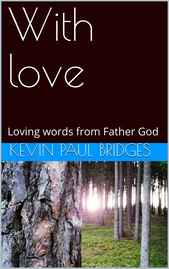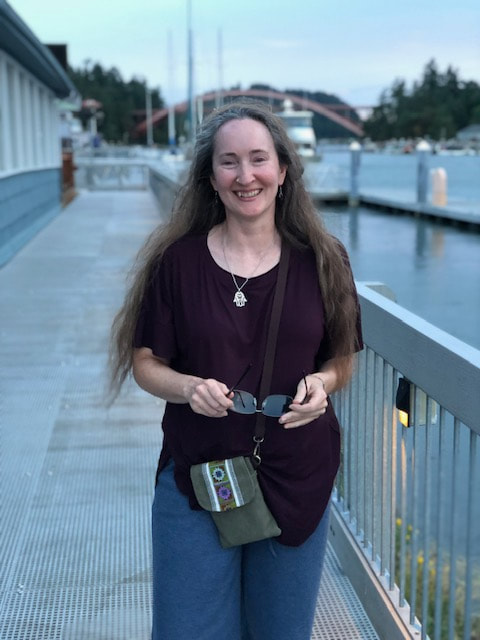 An intercessor’s life is peculiar. We require a lot of quiet and reflective time, praying, fasting, pushing aside things—sometimes important things—in a moment’s notice when the Holy Spirit prompts. We are dedicated, reliable, sensitive, sacrificial, and disciplined. Some of the requests, places in the spirit world the Lord wants us to stand-in-the-gap over, can be wild stuff. We are enabled to see through God’s eyes regarding particular details. Sometimes we get a glimpse of the fruit of our labors, oft times we don’t, but we do this thing called intercession anyway. I love my life of intercessory prayer because it’s more time spent with the Lord. The process heightens how we hear his voice; it expands how we depend on him. And it’s for the sake of others. Heart for God; heart for his people. But we’ve all had our struggles with the calling. The hardest part for me is finding balance… the fine line between being empathetic while you’re pouring yourself out over an assignment and investing in someone else’s spiritual journey, and remaining objective so that the process doesn’t consume you. Intercessors often operate under a sense of need to help others. It gets heated, intense sometimes, especially when coming against principalities and demonic warfare. It’s emotional. I am an all-or-nothing person. This makes me a committed and fervent prayer warrior; also, a basket-case when an assignment lifts or concludes, where I’m wandering about without aim or inspiration. We have to learn how to trust in between commitments, stay prayed up and not let our guard down, and be obedient in letting go. For it all belongs to the Lord, from the beginning to the end. Occasionally I’ve had assignments I wish I hadn’t, with awful warfare, and felt relieved to get through them. Yet the biggie for me more often is letting go. Because I still feel tied to circumstances and people I’ve prayed for, in a personal way—especially if it lasts for months or years. An example of this is when, not that long ago, a maritime assignment lifted. My spiritual obligation over this one lasted quite a while, and it was a journey, as some of you might already know. It began with the Holy Spirit alerting me to specific seaports, then ships and crewmembers. And I prayed over a whole gamut of conditions and seafarers (also floating church planting and port outreaches). Near the end of this task, the Holy Spirit would give me the name of a ship and where geographically it was positioned. Found these nifty little apps that can track ships, so discovering each of these named vessels was like a treasure hunt, and a joyous confirmation of the Lord’s lead. Each called out ship was exactly as the Lord said it was and where. He also gave me Words of Knowledge to understand what the vibe was on board, the spirits, the challenges, the sailors… and sometimes who might the Lord want covered in a specific way. I knew via the Holy Spirit when he gave me the name of the latest vessel, that it would be my last—at least within this format at this time. Understood that my prayer voyage here would lift at this ship’s next port. It was so very sweet when I discovered my last port of call would be Seattle. My hometown. I’ve lived in East Tennessee for so long it’s home to me now, too. But I grew up in Seattle. It’s still my home. I prayed, and watched via satellite in real time, as the tugboats came along and assisted this vessel into the Port of Seattle—arrived! It felt like a homecoming party. I celebrated. And these people, this crew, had no idea a crazy intercessor was praying for them, watching them, fasting on their behalf (or maybe they did, as the Lord told me there were firm believers on board). I always wonder, does somebody sense it when a prayer warrior across the oceans has gone up to bat for them? Fasting and praying, fighting and rejoicing? Probably many someone’s, as I’m not the only spiritual-crazy out there. But… then it was sad for me to let go. I felt invested in the task. I also stretch and grow during these times. The Lord takes me through a journey, asking if I’d do this or that, how much am I willing to commit, how far will I follow his lead? I also have to press in sometimes for clarity, just to understand if I’d heard God correctly. By the way, the Lord has a very special love for seafarers. They were his first choice as his disciples. Well, another commission came fast on the heels (stern) of that last ship. For the Lord clarified that many in my missionary/ministry circle were in or are walking into a new season. We are all in different seasons; rather, varying places within the same season I’m inclined to think. But it seems almost everybody I know has been in a series of whirlwinds to prepare, get ready, and launch or expand into something greater, different, or newer. I’ve been watching and interceding over these launches, committed to holding their arms up like Aaron to Moses and prayed as the Spirit guided. I get to pray often for those beginning new ministries—and I love that. While praying on the phone with somebody recently who was experiencing frustrating hindrances, I got a vision, and in fact had the same vision for a handful of people. We prayed it through, knocking down the demonic gatekeepers and obstacles, and asked for an angels’ charge to carry them onward. We received instant results. Thank you, victorious and glorious God! Now, many of those I know who are being sent have begun, are all set; at least for now. And I rejoiced. I also grieved. I spend much of my time uplifting others, interceding for others, watching them go, and celebrating with them. And I’ll be there for them when they need a supportive, praying sister. But sometimes, the lowly human in me gets caught up in the flurry and then feels left behind. I wish I was the one going. I wish I was commissioned to go out in the field. I’d had that calling once. Perceived God’s call into ministry when I was a young child. Later answered the call and went into full-time ministry through Christian performing arts and worldwide missions. I really enjoyed the field, thrived in challenging environments and all. It was a good fit for my fundamental nature of yearning to absorb adventure, travel, and that deep love for different peoples and cultures. I flubbed up when I stepped away from that path, when I never should have—and God didn’t ask me to. Rather, I didn’t seek him, just did my own thing. I’ve since come to terms with my decisions/mistakes that put a cement stop to all the “moving around” kind of ministry. Repented. Made good with serving the Lord in the best way that I can under my circumstances. I’ve sought his face, pursued his heart. I’ve been obedient. Have written a lot. Realized that I’d learned things I wouldn’t have had I not gone through the erring and wandering ways. Found humility in a place of despair, among a myriad of better things from a firmer Biblical perspective. The entire development has made me stronger. For that, I’m grateful. And I feel called again. Actually, I’m not sure the calling ever left… even if one walks away from it for a time (a long time) in life. For in Romans 11:29, it says, “For the gifts and the calling of God are irrevocable.” Irrevocable: “not able to be changed, reversed, or recovered; final” So, no, maybe I’m not picking up on somebody else’s radio frequencies. They’re my signals, intended for me. If the Almighty called me once, the call is still there. And stirring. One of these days, it will be my turn to go, to embark again on a very real-life, real-time, hands-on way, and he’s going to blow my mind when he does it. And instead of my saying with spiritual eyes, “He’s doing that thing over there.” It will be with both spiritual and natural eyes, “He’s doing this thing over here,” and I’ll be reporting about it from somewhere online. When my confession grows into my testimony. Last Thursday, another call-to-prayer over someone lifted. Right after, a cloud of oppression dropped over me. It was heavy, thick crud, and I couldn’t shake the rot off. And that’s just like the creepoid enemy; when the devil sees a vulnerability, he’ll seize the opportunity. Lasted for several hours. It was all I could do to listen to worship music and utter (even when I didn’t feel like it) “Thank you, Jesus.” Then the attack cleared with a snap (hey, maybe someone from afar was praying for me! Sure felt like I had help, and if so, thank you…) and I praised the Lord freely. But I did ask then of my savior, “Lord, what’s next for me?” And I didn’t mean a prayer assignment from my confined seat or closet. He gave me a vision. I saw a fortified, thick-beamed entranceway. I’d been in a dark space, and this large, bold door appeared. It was holy. I think it was already there, but it only just became visible to me. There were two tubular neon-ish lights, each distinct, yet wrapped around the door and pulsating together like the aurora borealis. I could also hear and feel the pulsating energy. The one in front was rich red, the one behind was sapphire blue; the thick frame between was white. So it appeared like a living triplet of stripes… two separate and distinct colors welded together and supported by this strong inner/middle white frame. Through to the other side, steps away, was bright, beaming, living light; fluctuating and revolving as if a hundred lighthouses of holy fire. It sliced darkness. Took my breath away, especially with the sense of purpose and joy that came with this powerful vision. I wanted more, to learn more. In one word, I asked him, “Lord?” And he gave me one word for now: “Apostolic.” And so there it is. You’ve heard it from me here. You’ll hear again from me from there. One day. Soon.  The title of this post is a headline that moves me, for it is something of which I’ve had visions. Amid unforeseen yet increasing disasters, part of the future of the church might be to go increasingly mobile. As in, able to move freely or easily between places (insertion because I’m such a definitions geek). Equipped to respond to calamities—and here’s a cool thought: spiritually instructed to move out beforehand via servants’ prophetic gifts. To arrive at a pre-designated position with an outpouring of the Lord’s spirit, and be of service to others, to help and to rescue. Spontaneous pockets of human-related holy transports, bringing safety, peace, revival and deliverance. Less a church to go to and be fed (or as often is the case in complacent places, sitting and being a spectator), more a church to go out and feed. What if persecution, deception, and darkness worsen? If things get rockier, more chaotic, be it with wars, antichrist, politics, economies, viruses, and plagues; or if natural disasters increase in size and frequency? Might the handwriting be on the wall (expression from Daniel 5:5-31)? The Bible speaks of the earth, having once been destroyed by water because of sin, will be again destroyed by fire (Malachi 4:1, 2 Peter 3:5-7, 2 Peter 3:10, Isaiah 24:6). Seems fires and heat have cranked up in the world. My sister, as well as another gal who is a longtime friend and fellow missionary (we served together in Brazil), and I have all had a very similar—almost the same—dream, wherein we’re once again serving together. But the scenarios are different than the mission field we’d once known. Our dreams have us in disaster-like conditions. It’s night. A volcano has erupted; glowing lava is pouring into the sea. The three of us are navigating over wet rocks raised from the seabed and pulling terror-struck people out of the burning and churning water to safety—and as in my dream, into a lifeboat; then onto a bigger boat, a ship, really, with the words True North on its bow. These calamitous themes have been heavy on my heart lately, especially as global wildfires have spread out of control. But when I watched the news coverage of the disaster in Lahaina, and learned that people had jumped into the ocean to escape the engulfing flames, it triggered words that kept coming out of my mouth, “I wish I had a boat, I wish I had a boat, I wish I had a boat!” Drove me, feeling helpless, to pray. Prayed for the precious people of Lahaina, then I focused in on who had boats and could get there, to go and help transport the displaced, or to deliver necessities. Not to impede Coast Guard or FEMA (or any proper red tape), but to be the Jesus present, to be a spiritual voice of peace and love to those who have lost everything and are suffering. When I’d heard that some people drowned, bodies swept up on the seawall in Lahaina, I wept. That’s all I could do is intercede for those left there. Then my prayer language shifted to the implementation of more ministries, non-profits, foundations—people through whom the Lord is bringing visions that are mobile-in-nature to life. This is a vein in which the Lord often instructs me to pray. So my abovementioned missionary friend, who is also giftedly bilingual (English/Spanish), and who served with Floating Doctors as well, heads overseas in two weeks to work on obtaining her master’s degree with a focus on disaster relief management. For decades, she’s yearned to go through this specialized one-year program and decided she’d give up all, risk all, and just do it. It’s time. This is her seasonal shift; what her changing-of-the-guard looks like, a new chapter. This incredible gal with a servant’s heart has always said, “I just want to hand a cup of water to someone who is thirsty.” And away she goes. Mobile can also mean a fluidity in different ways than actual mobilization. Some believers are called to steward land to grow organic and sustainable crops to feed others with untainted harvests; Bible-centric therapeutic farms and/or rehab ranches where Christian healers utilize service animals of every kind and breed are under development. So are new blueprints for Messianic temples and other Jewish-flavored ministries with fresh vision and sacred worship. There are spirit-filled medical students and scientists furthering education and doing vital research on viruses, water purification, etc. And then divinely appointed unions seem to be at the heart of what God is doing right now, as well. New engagements are popping up that have “kingdom spouse” written all over them. This is all love on the move. Executed in different ways than just actual mobilization, but they all seem to have the same swift spiritual current: end times anointed ministries, and end times anointed marriages… for the glory of God. By the way, since I kept hearing “love on the move,” I Googled the phrase out of curiosity and highlighted was a Native American ministry. Which doesn’t surprise me, as this is another part in which the Lord has directed my intercession. Love on the move. I dig those words. Wow, wow, and wow, Lord! Amazing; you are amazing, God. Wow! Within dreams and visions—and current affairs—revealing growing darkness, I also see an end times church that carries the greatest joy and brightest light—like fluid lighthouses. His light and Spirit unleashed in unprecedented ways at unprecedented times. Where glory and worship break out on the spot, or might then pick up and move to the next destination, and repeat—however the Lord wants to show up! Totally dependent on the Holy Spirit. We’d have to know the Lord’s voice and word so well! Intimately. Thus, the required time in his presence, our waiting in the wilderness, our shedding process, our journey to purity that Yeshua has been leading a lot of us through. Many are called at this hour. Instead of, “Look out, it’s a disaster!” It’s, “Look, there’s the mobile church!” How about, “See, we’re the mobile church come to help in Jesus’ mighty name.”? Fluid in a lot of ways, no bounds. It’s love on the move.  Several years ago, a woman told me about an equine therapy clinic she’d attended. Sounded more like human therapy to me. That’s often the way it is with horses, though. They teach us more about ourselves than the other way around. Anyway, she shared how she’d learned that women tend to pick horses with similar characteristics as the men they choose for romantic partners. I couldn’t quite relate to that, as I’ve had a bunch of horses and not one was like the other. This notion did not represent my life’s human relational experience, nor had I considered any shared behaviors between my horses and men. Still, I found our conversation interesting. She went on to say during our barn talk, “If you’ve had an abusive experience, you might select a horse that was all wrong for you, hard-mouthed and running all over you. Stubborn? You’d get a mule.” She slipped a glance at the gelding I had at the time. I think she told me this stuff because I really struggled with that horse. In turn, I squinted at her gigantic black Friesian she referred to as “tall, dark, and handsome.” I hovered over those words. Recalling how I’d used the same expression to describe a character or two in my penned stories, as if that’s the epitome of a good catch; a sort of stereotypical “tall drink of water”. Okay, so she had the perfect horse, I thought. Until she admitted her Freisen was dangerous and she feared to handle her horse, let alone ride him; the reason for her attending the clinic. “Big-hearted man?” she continued. “You’d probably settle for one of those big gentle draft horses or something.” Or something. I glanced up again at her pushy Friesen. Height doesn’t make the man. Never has. Nor looks. Take a glimpse at 1 Samuel 16:7, when Samuel goes to anoint a new king of Israel. He’s struck by the tall, dark, and handsome appearance of the older of Jesse’s sons. Surely this is the one the Lord would choose. “But the Lord said to Samuel, ‘Do not consider his appearance or his height, for I have rejected him. The Lord does not look at the things people look at. People look at the outward appearance, but the Lord looks at the heart.’” Much like how the Lord rejects and departs from King Saul, he then chooses this unlikely one to take his place. He’s younger, good-looking in his own right, but not of the stature of his older brother. Called up from the fields, he’s all ruddy-faced from tending sheep. He’s chosen and anointed because of his heart. When it comes to horses, the two best horses I’d ever had as an adult were the only two that I hadn’t chosen for myself. They were chosen for me. The first was by a friend who was a cutting horse trainer, who called me out of the blue one day and said, “I met your perfect horse. You need to get down here and ride him. I’m serious. I just have this feeling you’re meant to meet this horse.” So I did, and he was right. It was a made-in-heaven partnership that spanned several states, miles of trails, and over twenty years. He was my irreplaceable dream horse. God worked through that situation and people, busy behind the scenes, until we paired up. He let me know when the conditions were right where I could suddenly receive that blessing. The horse I have right now, well, he wasn’t even for sale when I was looking. In the market again, I searched long for the right horse, but after a string of unpleasant experiences, hazardous test rides, and misleading people, I decided I’d see one more horse, the last straw. I’d driven three hours and at first glance, I knew the horse wasn’t right. I was discouraged. Then, out of nowhere, a stranger’s prompting hunch diverted me to meet a peculiar gelding with unusual, sad circumstances. Long story short, we’ve been together for two years now. He’s become dream horse number two. Yet, the only thing he has in common with my first dream horse is they’re both buckskins. They’re nothing alike, not even the same breed. Getting to know this one has been a learning curve for me. Chico is sensitive and feels deeply. This makes him affectionate, attached, protective, curious—moody sometimes, but he’s also the brother of my heart. That’s how I see him. We’re partners in grime, both like the woods, enjoy time together, and squabble on the rare occasion. He is as honest as they come and he’s my genuine friend. Come to think of it… that ought to be part of the equation in human romantic relationships, honest and genuine friends. Once again, God had worked out the details and I have this amazing horse I believe he chose for me. I witnessed an unseen arrangement materialize through the circumstances. I love my horse. We’re bonded. Took some time to get there because of history and all, but we’re solid. He’s also the shortest horse I’ve ever had, but I’m short, too. We’re an ideal fit. Again, height means nothing when the heart is bent for good. And he’s thick, substantial… strong. I’m partial to his conformation. He carries me well. I’m glad I didn’t settle again out of frustration. Settling is never good, frustration either. Wish I learned this long ago in terms of people. Always best to wait on the Lord—who has yet another horse in mind for me. I believe I will one day again enlarge my herd (and I know Chico will appreciate that). Because the Lord has given me a progression of many beautiful, tender dreams about a grey horse, nearly white. I see and hear the word “Hotah” distinctly around this horse. Had to look the word up to learn its meaning. Made me smile. Apparently, it’s of Sioux origin, meaning “grey” or “white.” Appears that this horse will also be very special to me. I anticipate meeting him/her when the time comes. Now that I will trust in the Lord, I don’t mind waiting. He’s always right on time; his timing is perfect. I guess there were only women at that equine therapy clinic. This notion could equally apply to men. Say you’re a man who has a mare. And in the human relationship characteristics analogy, did you settle and are dealing with the complicated fallout, or did you wait for the right one, the one the Lord intended for you? Your answer might reveal her temperament, whether it’s favorable. If you view this contrary to the world’s standards, then maybe she’s—oh, I don’t know--older. Not at all modelesque, as in tall, svelte, and glamorous… but she’s not unpleasant to look at. Maybe it’s her shining heart that grabbed you. Because she’s devoted—so devoted to you and to the Lord; a runner… after Him, and for your arms. The two of you can accomplish more for the Kingdom and for God’s glory together in this race of life than you could without each other. Hm… I might write this in a story somewhere… In these observations, whether inimitable or stereotypical, inspired or strange, may you be blessed and nurtured in your pursuit of the King of Kings. Do not settle. Let him choose the things in life for you, especially such important things as relationships (or horses, if you’re also someone who dedicates time to them). And when he chooses you for something or someone… when you’re chosen, you’re more than enough. Because he’s seen your heart. When you’re anointed, you’re more than enough. When you know him, you’re more than enough. He’s made you more than enough. Arise, like David for Israel.  When Lana Applewhite skipped town after high school, from a small rural community bent for gossip, she meant never to return. Aside from getting jilted, she also sidestepped expectations to help run the family-owned candy store. Now ten years have gone by, and although she’s reluctant, her grandmother’s urgent plea brings her back home, only to discover news that has her reeling with indecision. When she seeks out her childhood best friend, Beau Monroe, it’s as if things between them never changed. Yet beneath the surface, they have. Beau has kept a secret that may ruin their friendship. Steadfast yet shy, a man of few words, he’s missed every chance over the years to tell Lana… until now. Confessing his love to her may change everything. Then again, Lana just might have a secret of her own. Her Beau of Piney Cove is a clean and wholesome Southern Christian romance, my latest book freshly released. Available in digital and print formats with new stores added daily, grab yourself a copy… if it’s your cup of sweet tea.  Yesterday, I posted about varied and unlimited styles of prophetic boldness, focusing on the word boldness. Boldness doesn’t have to mean loud and commanding, as I’d once thought. That for the introverted types, boldness can come in the style of taking risks confidently yet still quietly. Communication of God’s message that is strong, vivid, and full of truth can have a delivery that looks a lot of different ways. The gifts of the Spirit are variedly special and purposeful. It's not about us, but about God’s love expressed through us that encourages and motivates others. With that said, there is a prophet who has spoken into my life already several times and affirmed visions and promises of God. I so appreciate his demeanor; his soft-spoken, humble words of truth, love, peace, and trust. I now subscribe to his YouTube channel and listen to his Daily Prophetic Word and more. Encouraging, edifying, sweet, full of God’s tender love and light. I’m taking comfort along my journey with his lovely gift of prophetic boldness. It’s good medicine to have a true prophet of God speaking into your life with words of hope and affirmation (“A happy heart is good medicine and a joyful mind causes healing…” Proverbs 17:22). I consider several to be prophets of edification in my daily walk. Kevin Bridges is one who I’ve only recently discovered, but who speaks of God’s love in a compassionate and serene style that is nurturing to my soul. He is a calm conduit of hope and encouragement. So I thought I’d share his channel information. If you’re like me, a quiet and reflective one, you might like to listen to his inspired words, too. https://www.youtube.com/@KevinBridgesDP/featured I also just finished reading his poetic book, and of course I recommend it: With Love: Loving Words from Father God by Kevin Paul Bridges Be ever blessed with words that inspire. |
Tessais a storyteller, and a transcript editor. She's also a Romans 8:28 kind of Jewish girl ... For Tessa's new
|






 RSS Feed
RSS Feed